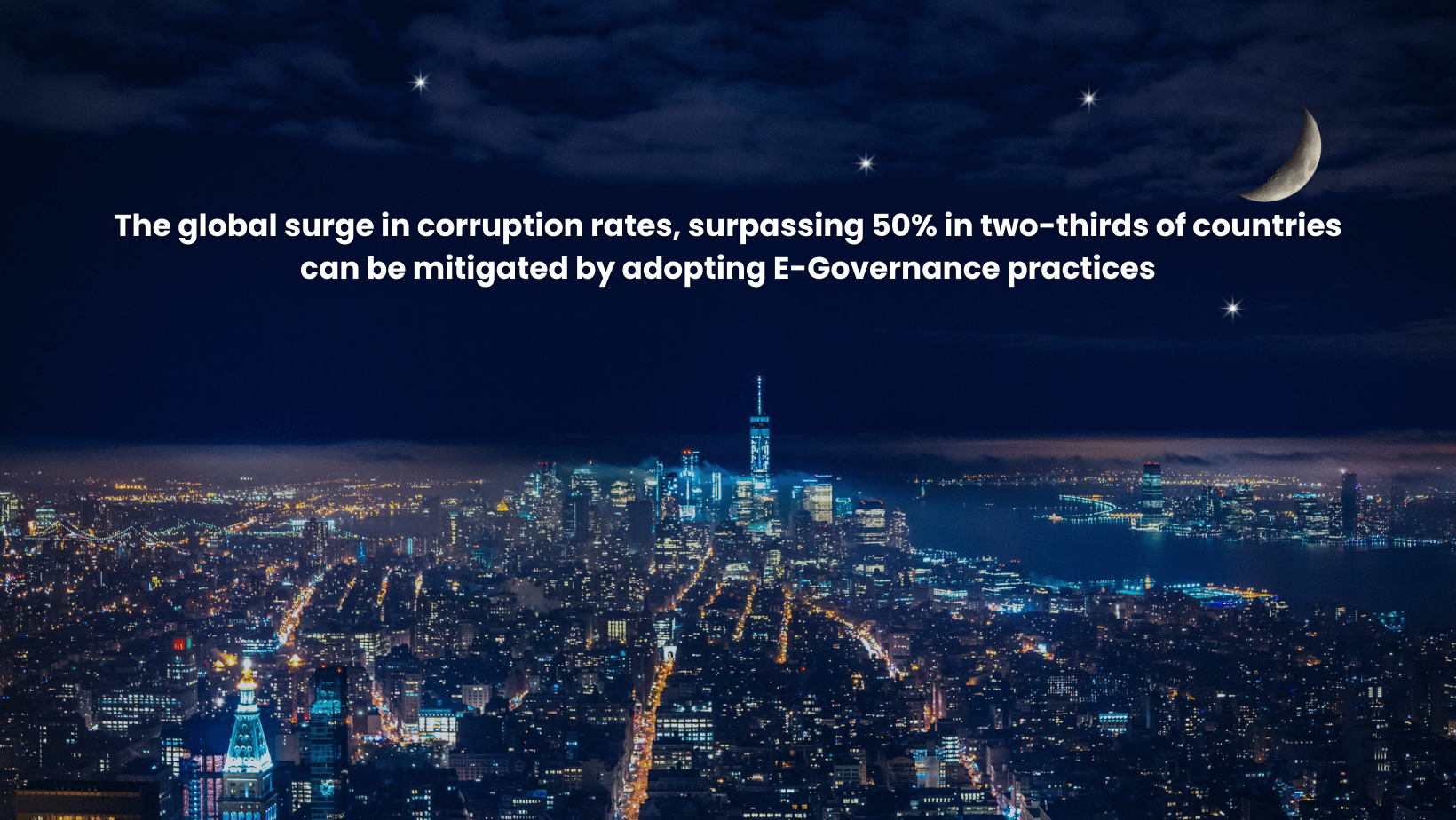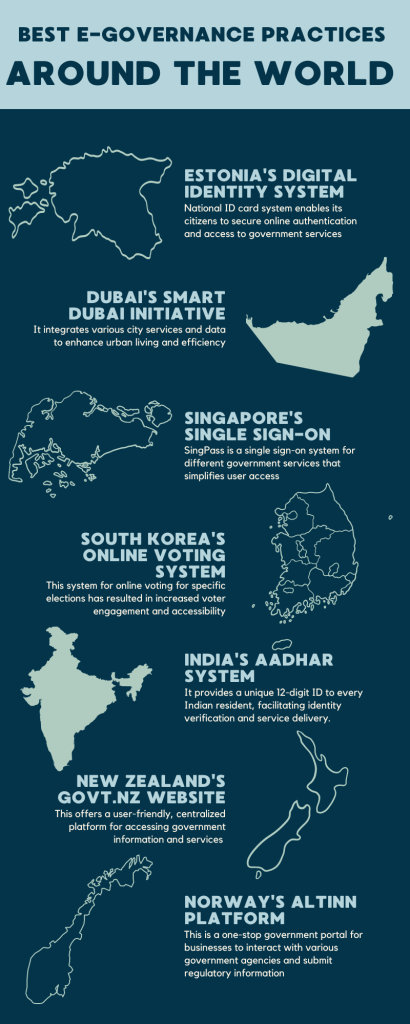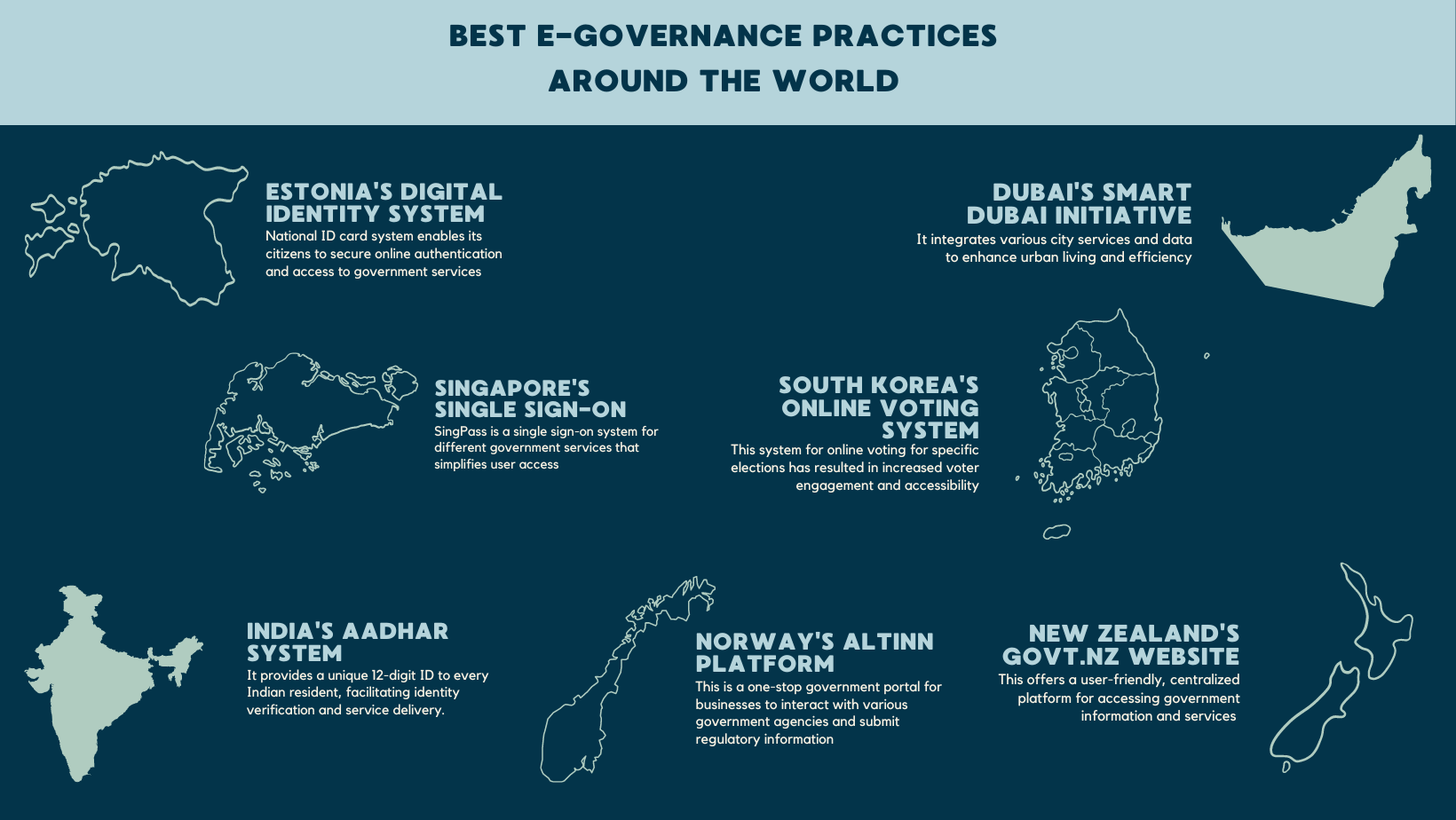
22 Nov The best E-Governance practices from around the world
In the face of an alarming global surge in corruption rates, surpassing 50% in two-thirds of countries, the imperative for effective governance has become a formidable challenge. One of the best ways to combat this burning issue is by adopting E-Governance practices. In this digital age and increasing need for transparency and efficiency, the concept of e-governance has become the hope for government reform. Driven by technology, E-Governance is used to deliver governmental services, share information, manage resources, or perform any transactions from government to government, citizens, or businesses following the set rules. E-governance at its core helps to improve the quality of life of common citizens. It contributes to economics, security, human rights, and infrastructure development.

What impact do e-governance practices have on the world?
E-Governance can have a positive impact on the lives of citizens. Through accessibility, transparency, and good practices, e-governance can help improve the GDP of a country in the long run. Some of the positive impacts that can be seen with e-governance practices are:
- It helps reduce corruption by ensuring the transparency of transactions.
- Increases convenience through ease of getting service.
- Improves internal efficiency and productivity.
- Reduction in overall cost using technology.
- Expanded reach of government due to network and connectivity



Seven best e-governance practices from around the world
Some of the best practices of e-governance around the world that have helped mitigate raging issues like corruption, unreliable services, unequal distribution of resources, and so on are:
- Estonia’s Digital Identity System: Estonia’s national ID card system enables its citizens to secure online authentication and access to government services. It gives efficient and secure access to public services, reducing bureaucracy and enhancing citizens’ convenience.
- Dubai’s Smart Dubai Initiative: The Smart City Initiative integrates various city services and data to enhance urban living and efficiency. It has improved city management, resource optimization, and provided a better quality of life for residents.
- Singapore’s Single Sign-On (SingPass): SingPass is a single sign-on system for different government services that simplifies user access. It has helped improve the user experience, reduced login fatigue, and streamlined access to government services.
- South Korea’s Online Voting System: South Korea has a system for online voting for specific elections, increasing electoral participation. This has resulted in increased voter engagement and accessibility.
- India’s Aadhar System: The Aadhar Card system in India provides a unique 12-digit ID to every Indian resident, facilitating identity verification and service delivery. It has enhanced the targeting of social benefits, reduced fraud, and increased the financial inclusion of common people.
- New Zealand’s Govt.nz Website: Govt.nz offers a user-friendly, centralized platform for accessing government information and services in New Zealand. It has improved citizen engagement, simplified information access, and reduced confusion when contacting the government.
- Norway’s Altinn Platform: Altinn is a one-stop government portal for businesses to interact with various government agencies and submit regulatory information in Norway. This has enhanced business efficiency, increased compliance, and reduced the administrative burden on the government.
These practices have helped in the overall improvement of the quality of life of the citizens while also making government services streamlined, managed, and accessible. While e-governance does come with a set of challenges relating to data security and connectivity, it has helped improve the interactions between governments and their citizens by simplifying processes and improving efficiency all over the world.
Blog by Shreya Ghimire,
Research Analyst, Frost & Sullivan Institute


Sorry, the comment form is closed at this time.